How local businesses can equip themselves and leverage HR as a strategic tool for growth and expansion
TalentKraft’s co-founders Eugene Goh and Zanyu Ang shared expert insights with Howie Lim on MoneyFM89.3.
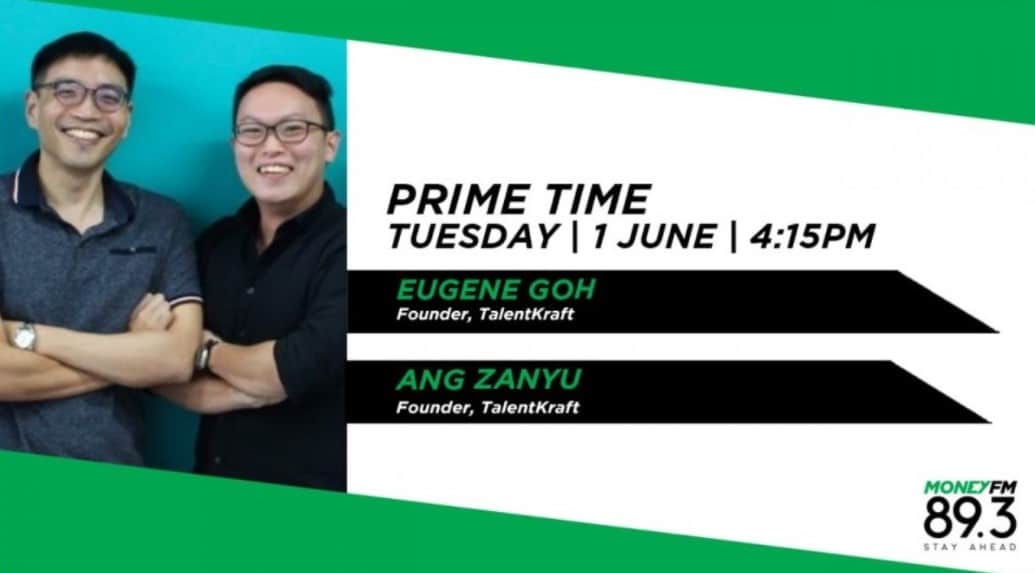
Key highlights of the conversation:
-
- What is the future of talent? (01:07)
- How has COVID-19 affected the future of talent? (01:41)
- Why is there an increasing acceptance towards HR digitalisation? (02:23)
- How does digital transformation change talent attraction? (03:44)
- Why is HR digitalisation accelerating? (04:48)
- How can SMEs compete with larger corporations in the future of talent? (05:45)
- What are the key challenges faced by SMEs in HR digitalisation? (07:30)
- Why should SMEs view HR as a strategic function? (08:43)
- How shall SMEs utilise ‘high tech’ in HR digitalisation?(09:30)
- How can we maximise the value of “high tech” in HR? (10:40)
- How can TalentKraft consultants add value to your business? (11:48)
- How can SMEs better prepare for the future of work (with EDG Grant & the right mindset)? (13:05)
1. Introduction (00:09)
Host: I’m Howie Lim. As the future of work continues to evolve, organisations are picking up on the need for digital transformation to stay relevant and future-proof. More’s expected of companies today with a staggering 87% of respondents in a UOB survey expecting employers to digitalise over hiring externally or retrenching workers to save cost. Despite recognising upskilling as a key tactic, businesses continue to face challenges in attracting the right talent. Local SMEs not only have to contend with new priorities, they also face fierce competition from larger organisations, who are more established and have deeper pockets. So how can local SMEs and businesses sufficiently equip themselves and leverage HR as a strategic tool for growth and expansion? For more insights, we speak to Eugene Goh & Zanyu Ang, co-founders of TalentKraft. Gents, thanks for your time.
Eugene and Zanyu: Thanks for having us.
2. What is the future of talent? (01:07)
Host: Pleasure’s all ours. So let’s start with the future of talent and what it is shaping up to be like. Actually first, what does the future of talent mean? Eugene, maybe you can help us out?
Eugene: Sure! From TalentKraft’s perspective, we see the future of talent as the ways in which hiring, attracting and retaining talent are expected to change in the coming years. This is part of a broader evolution of work and the whole future of work concept. But specifically relating to talent, how people work with organisations and how organisations engage their employees.
3. How has COVID-19 affected the future of talent? (01:41)
Host: And so how is it shaping up then and how did this year of pandemic change that, Eugene?
Eugene: That’s a great question. It’s important for companies to realise that what we used to call “the future of talent” is actually already here. So trends that people have been talking about for the last 5-10 years — such as a move to remote working or fully contactless online recruiting and onboarding — these have all been accelerated by the pandemic. Things people thought would happen in 2025 to 2030, are already here today and (are) unlikely to go away once people realise it is possible to do things digitally. Companies need to understand that they have to adapt and change or risk being left behind.
4. Why is there an increasing acceptance towards HR digitalisation? (02:23)
Host: You think it would have been accelerated without the pandemic? I know it might seem a little useless to ask that question because the pandemic happened and this is how things are, but it felt like even at that point 2, 3 years ago when these things were being talked about, the take-up rate didn’t seem to be great and people just didn’t have that fire under the backside, if you will.
Eugene: Absolutely! So I think there’s a lot of resistance to change in general. It’s easier to not take a risk than to try and do something more radical right? So I would say that there used to be a lot of resistance. For example, take the interview process. 18 months ago, almost everybody we spoke to would look at us funny if we told them, “you don’t need to bring all the candidates into the office for an interview, you can interview them remotely or assess them by using an online skills test.” That’s now become everybody’s reality, at least for part of the last year, as everybody has switched to Zoom interviews or using online video tools, where you can record your answer then be screened remotely. Even though it has taken some changes to the interview process in order to adapt, many have found that this works just as well as the live ones used to. And these are the kinds of changes that wouldn’t have happened so quickly without the pandemic, and also won’t go back to the old status quo once people realise they actually work quite well.
5. How does digital transformation change talent attraction? (03:44)
Host: What else is expected to change how companies attract and hire talent with digital transformation?
Eugene: I think there is a move away from a reliance on CVs, and instead starting to do more testing, so hiring for aptitude and skill rather than just track record and experience. An example of this is where we worked with one of the world’s leading consulting firms on an online case interview tool that simulates their traditional live interview process, in order to decide which candidate they should actually invite. Instead of just a CV screen, then bringing them in for an interview, there is an extra round in the middle which allows them to test many of the same skills, at a slightly larger scale. So you don’t have to just narrow down to 10 interviewees, but you could test 20 people and then interview 10 in the end. I think some of these tools are going to become more widely adopted and I think that’s a good thing, moving away from how good your CV looks, to actually how well you can perform on the job.
6. Why is HR digitalisation accelerating? (04:48)
Host: Also let’s talk about how else things might change going forward. I mean it’s a little hard sometimes to predict when things are still so volatile, I suppose?
Eugene: Yes! I think that digital transformation, using tools and technology to automate processes that used to be done manually, now that they don’t have access to their filing cabinets with their personnel records, has forced companies to use electronic HR records and HR Management Systems. So once you have all the information available online, then this enables a lot of other tools and processes to be automated and accelerated using technology. Whereas in the past, because there was no information available, it was more difficult. Once you have the HRMS, the management system, as a backbone, (it) actually accelerates the rest of the digital transformation of HR.
7. How can SMEs compete with larger corporations in the future of talent? (05:45)
Host: Let’s get Zanyu into the conversation. Zanyu, SMEs have a lot of things to contend with — competition from deep pockets, other priorities that they want to be looking at, but this should be a priority, shouldn’t it? How can SMEs then level this playing field in order to be competitive?
Zanyu: That’s a good question. What we always recommend for SMEs is not to compete with the bigger corporations head-to-head. Like you mentioned earlier, because bigger corporations usually have deeper pockets, they can talk about things like international exposure and fast progressions. And these are things SMEs will struggle to provide and compete. One thing that we want to highlight is that not every employee wants high salaries, fast progression and international exposure. The main thing we want to do is to get SMEs to find out and develop their own unique selling points and assets that they can promote to attract people that fit well with their companies. So one thing that we always tell our clients is that we are not trying to help you attract as many people as possible, we just want to help you attract people who fit well with what you guys can provide. One thing that we do is a survey called TeamSight, where we identify important motivators between the company and also whether they’re satisfied or not. What we do with this data is to get the characteristics and traits of a company that people are happy with that have been preached and practiced in the firm and turn this into employer brand messages to attract them. So I think these are ways, not going head-to-head against Google and Facebook of the world but to really differentiate and say, “hey, there are other companies you can consider as well”.
8. What are the key challenges faced by SMEs in HR digitalisation? (07:30)
Host: How much are SMEs lagging at this point?
Zanyu: It ranges. There are SMEs that place (a) huge emphasis on HR and transformation, and there are also SMEs that have been doing the same thing for 20 years and haven’t changed much from their pen and paper techniques. I would say 1 key reason why SMEs are lagging behind is a lack of leverage. This refers to the options they have to improve their talent strategy. For larger corporations, they can increase salaries, having more structured training programs, and things like that. For SMEs, they are usually running on a lean team, and do not have much extra capacity to provide training. We have a lot of SMEs who are trying to go into technology and hiring new roles, but they don’t even have somebody who’s already doing software development. They don’t even know what they are hiring for, or how to train people for it. That’s a struggle that they have – it’s not just saying that I want to hire a software developer, it’s about what I need in that software developer, and that’s where many SMEs struggle.
9. Why should SMEs view HR as a strategic function? (08:43)
Host: That’s a difficult position to be in though, isn’t it Zanyu? That’s because some SMEs are struggling with keeping their heads above water, now you’re asking them to figure out how to better screen candidates for example, how can we get the word out that this is a priority area as well?
Zanyu: A big change that we think will always be useful for companies is actually the mindset. A lot of times when we ask the management team about how they view HR as a function, they see them as an administrative function, as a cost center doing things like payroll, leave management, attendance taking. With this mindset, companies are less willing to invest time and resources to automate processes and build up their capabilities.
10. How shall SMEs utilise “high tech” in HR digitalisation? (09:30)
Host: Not to sound like The Devil’s Advocate, but if we are talking about SMEs, which as you have mentioned earlier, are still using pen and paper, I hardly think they’re willing to switch to this kind of (what they might deem) high-tech solutions.
Zanyu: I think that’s because a lot of times when they think about tech solutions they think about SAP or Oracle, where software implementation costs 1 million or half a million dollars. With more and more companies coming up, there are more SaaS-type HR functions. For example, for an application tracking system, that is as low as $100 a month. For HRMS, it’s like $10 to $15 per employee per month sort of cost. I’ll say usually cost is not a big factor in stopping companies from doing it, I think that a lot of times companies adapt and adopt this solution but the people are more comfortable with the old way of doing things, hence they don’t maximise the use and value of these software, which is a reason for the slow improvement in their capabilities.
11. How can we maximise the value of “high tech” in HR digitalisation? (10:40)
Host: The thing about SMEs is that they have leaner teams perhaps, a lot of them are double hatting and triple hatting, it’s hard to say get everyone up to speed with the new tech, take time out of doing the “jobs” and learning the new functions and procedures.
Zanyu: Exactly, which is why sometimes when we work with clients, besides just improving processes and technologies they can implement, we also train them to look at the change holistically. A lot of times when we work on change management, people just see the new software and how to use it. But things that are affected also include the people, who needs to be trained, how will their job scope change, and the policies as well. What are some of the policies that need to be changed? And also the overall business processes that need to be changed. When we implement software, we need to look at all these factors to make sure the value is maximised.
12. How can TalentKraft consultants add value to your business? (11:48)
Eugene: I think we are coming to the point that we are both very passionate about. The reason we started TalentKraft was because we recognised that lots of good companies in Singapore struggle with HR, and they struggle to make the leap from compliance to HR as a strategic resource. Our goal is to step in and bridge that gap. A lot of times you don’t actually need a high powered HR person in the company, you can get someone like us to identify the changes that need to happen, upskill the team, put in place the new processes and then the team can continue to run it quite well. I think for us, making that step change is what we hope to help companies to do.
Host: Very altruistic, Eugene. Also, some might say a bit foolish, you have come up with tech that will now replace you: the HR professional.
Eugene: In fact, we specifically tell the client that our goal is to build, operate, train, and transfer. We are consultants, we are not service providers who want to do long term outsourcing. So we build what you need, we operate it for a while to make sure it’s good, train your team, and then transfer all the capability to you. That’s what we aim to do, we don’t aim to become a long term outsourcing provider for some HR services, that’s our perspective.
13. How can SMEs better prepare for the future of work (with EDG Grant & the right mindset)? (13:05)
Host: How hopeful are you that mindsets are being changed right now because it almost feels as though the pandemic was not enough to put fire under people’s backsides if you will?
Eugene: A couple of points. In Singapore, the good thing is that the government recognises this as an essential thing that needs to happen and they put a lot of money behind it. There is government funding in the form of the Enterprise Development Grant, which can cover up to 80% of this project cost. So that’s one element (of) why I think there’s a chance for the change to happen. I think the recent move back into a heightened alert has made it clear to people that we are not out of the woods. There was a little bit of: we are past the worst, and things are going to go back to normal. I think people are now wary that it’s not going to be smooth sailing even with the vaccines, and that I think will cause people to rethink the urgency of some of these changes.
Host: Zanyu?
Zanyu: I fully agree with Eugene. When we were talking to companies in July last year, a lot of them thought that in 2-3 months, most things will be fine. Many companies thought they would be back to the office, and that things would go back to normal. Some companies were even planning to have a back-to-office arrangement. However this heightened alert was the fire that you were talking about, to see what’s gonna be next. If they keep having the “we are going back to the old normal” mentality, some will suffer while some will adapt. But I think this (heightened alert) is basically the push that all companies need. The first push was enough to make them aware of the problem, but not urgent enough for them to do something. This is the 2nd push to get them to do the necessary things to prepare for the so-called future of work, which is already here.
Host: Zanyu and Eugene, thank you so much for your insights today. We’ve been speaking with Zanyu Ang and Eugene Goh, co-founders of TalentKraft.
Eugene and Zanyu: Thank you so much, Howie.
Talk to our experts today for your HR digitalisation journey, with up to 80% Enterprise Development Grant support!
Liked this article?
Other insights...
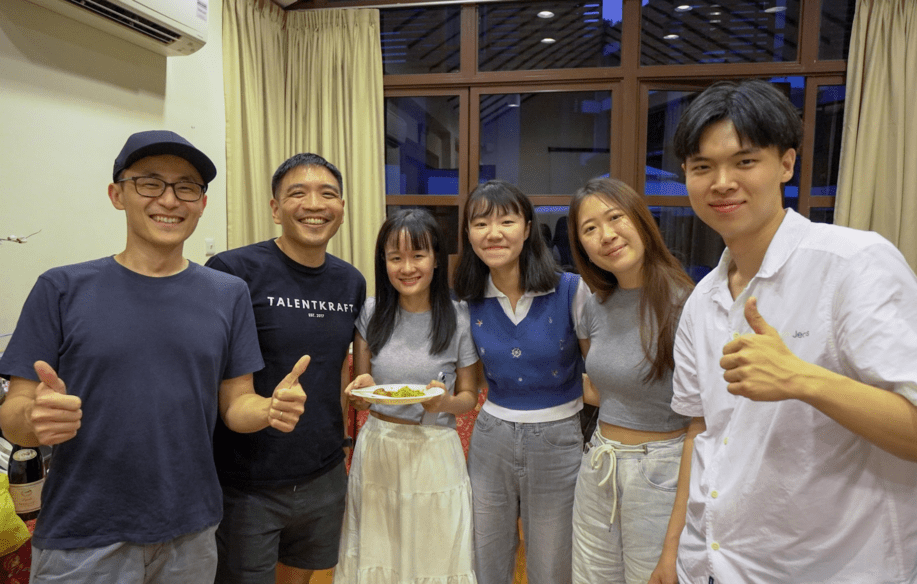
Discovering ourselves as Gen Zs
Discovering ourselves as Gen Zs, we face unique challenges in aligning our careers with our passions. TalentKraft’s internship provided invaluable experiences, helping us define problems, explore options, and evaluate career paths. Through workshops, personality profiling, and real-world projects, we gained insights into various industries and honed our problem-solving skills. This journey has been crucial in shaping our professional growth and career decisions.

Top 3 HR challenges faced by non-profits and how to tackle them
According to LinkedIn, firms with poor employer brands could be paying as much as US$7.6 million. What exactly is an employer brand and what does it entail? And how can you improve your employer brand today to appeal to top talents?

5 ways to improve your employer brand
According to LinkedIn, firms with poor employer brands could be paying as much as US$7.6 million. What exactly is an employer brand and what does it entail? And how can you improve your employer brand today to appeal to top talents?
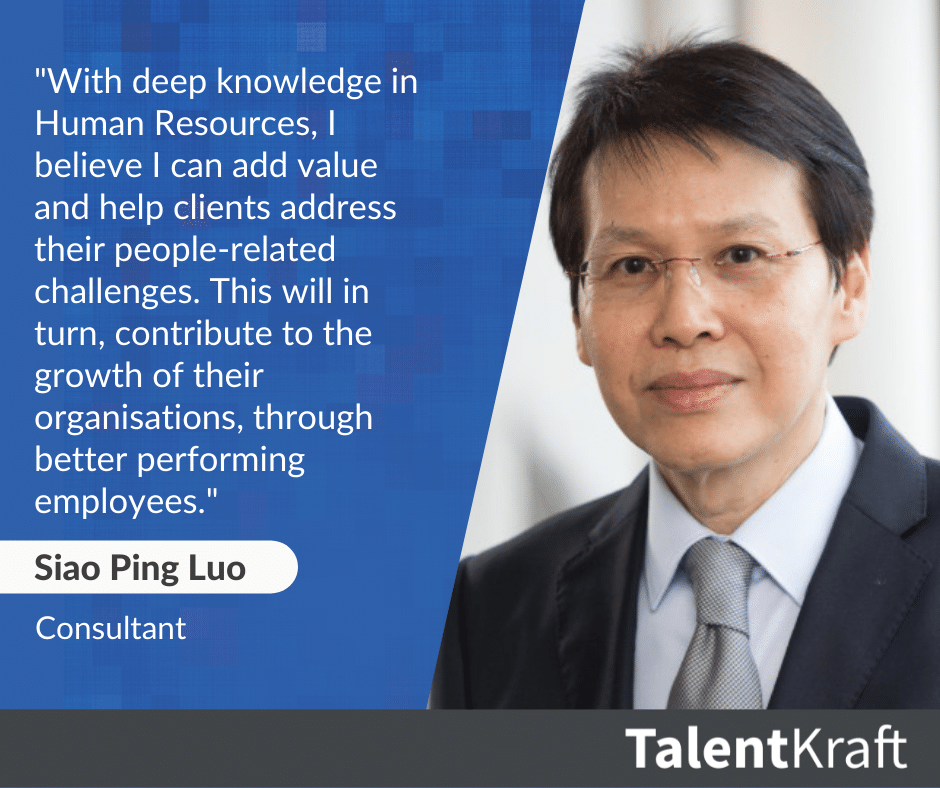
Talent spotlight: Meet Siao Ping Luo, HR expert & Consultant with growth mindset
With over 20 years of hands-on experience in the HR space, Siao Ping has become a leader in the Human Resources (HR) field and a consultant on people-related topics across diverse industries in the APAC region.
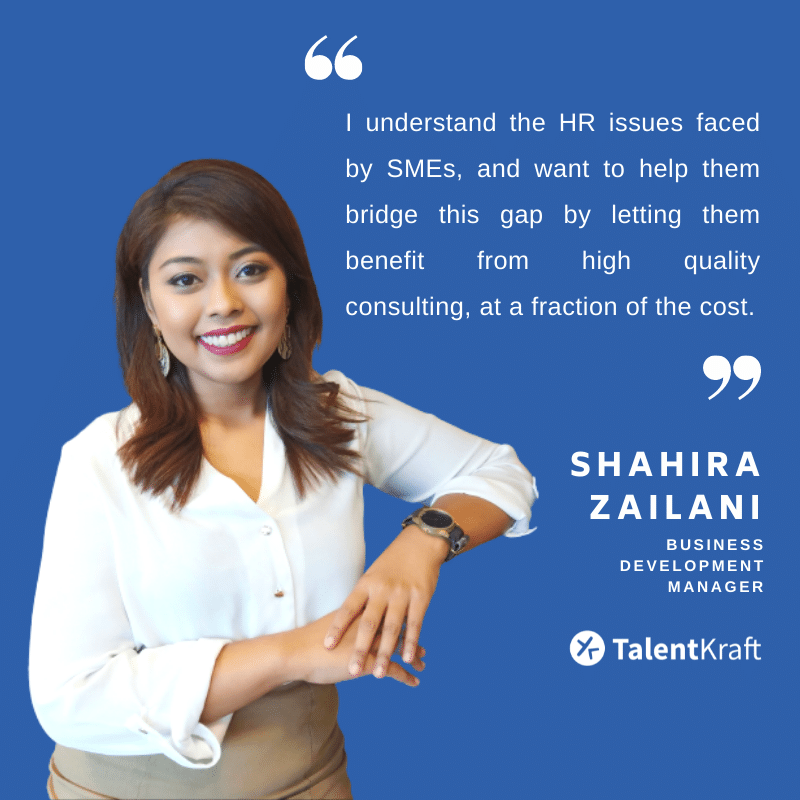
Talent spotlight: Our BD manager’s journey with HR
With 14 years of experience leading teams, our new Business Development Manager is no stranger to the intricacies and challenges of HR. Shahira Zailani shares her thoughts on helping companies build more effective teams!
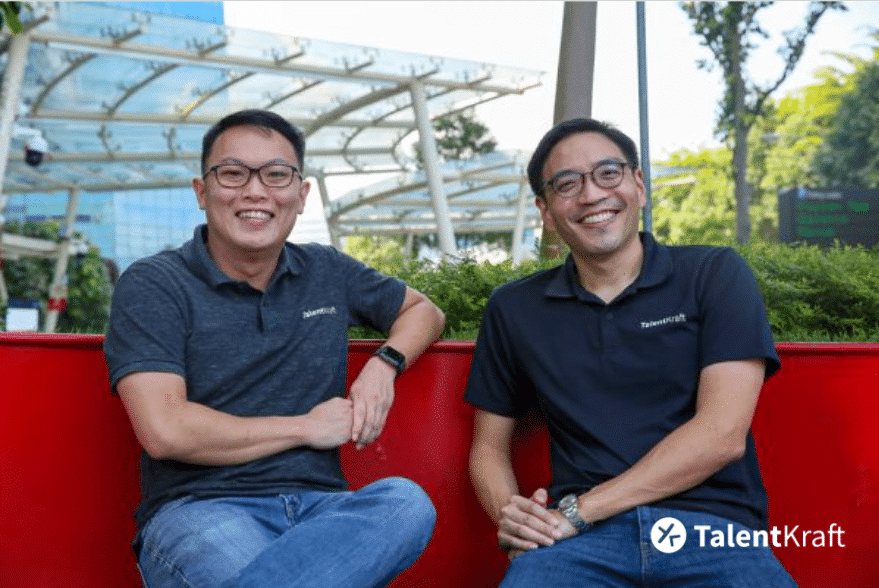
TalentKraft helps SMEs and businesses unlock value in HR – THE BUSINESS TIMES
Part of the strategy consultant’s challenge is educating SME leaders on the importance and value of HR to their wellbeing.

